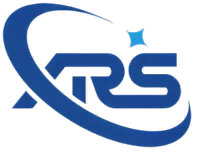What is the temperature coefficient of a Timing IC?
Leave a message
Hey there! As a Timing IC supplier, I often get asked about the temperature coefficient of Timing ICs. So, I thought I'd take a moment to break it down for you.
First off, let's talk about what a Timing IC is. In simple terms, a Timing IC is an integrated circuit that's designed to generate, control, or distribute timing signals. These signals are crucial in a wide range of electronic devices, from smartphones and computers to industrial equipment and automotive systems. They ensure that different components in a device work in sync, which is essential for proper operation.
Now, what about the temperature coefficient? The temperature coefficient of a Timing IC refers to how its performance changes with temperature. You see, like most electronic components, Timing ICs are sensitive to temperature variations. As the temperature goes up or down, the electrical characteristics of the IC can change, which can affect the accuracy and stability of the timing signals it generates.
The temperature coefficient is usually expressed in parts per million per degree Celsius (ppm/°C). This tells you how much the frequency or other timing parameter of the IC will change for every degree change in temperature. For example, if a Timing IC has a temperature coefficient of 20 ppm/°C, it means that for every 1°C increase in temperature, the frequency of the timing signal it generates will change by 20 parts per million.
Why does this matter? Well, in many applications, accurate timing is absolutely critical. Take a Clock Synthesizer IC for instance. These ICs are used to generate precise clock signals with specific frequencies. If the temperature coefficient is too high, the frequency of the clock signal can drift significantly as the temperature changes. This can lead to errors in data transmission, synchronization issues, and overall poor performance of the device.
Similarly, Clock Buffer ICs are used to distribute clock signals to multiple components in a system. A high temperature coefficient can cause variations in the timing of the signals received by different components, which can disrupt the proper operation of the entire system.
And Clock Oscillators are another important type of Timing IC. They generate a stable and accurate clock signal, and any temperature-induced frequency drift can have a major impact on the performance of the device they're used in.
So, as a Timing IC supplier, we pay a lot of attention to the temperature coefficient of our products. We use advanced manufacturing techniques and high-quality materials to minimize the temperature coefficient and ensure that our Timing ICs can maintain accurate and stable performance over a wide temperature range.
We also conduct extensive testing on our products to measure their temperature coefficient and ensure that they meet the specified performance criteria. This includes testing at different temperatures and environmental conditions to simulate real-world usage scenarios.
When choosing a Timing IC for your application, it's important to consider the temperature coefficient. You need to make sure that the IC can operate within the temperature range of your device and still maintain the required level of accuracy. If you're working in a high-temperature environment, for example, you'll need a Timing IC with a low temperature coefficient to ensure reliable performance.
In addition to the temperature coefficient, there are other factors that can affect the performance of a Timing IC, such as power supply voltage variations, electromagnetic interference, and aging. But the temperature coefficient is one of the most important factors, especially in applications where accurate timing is critical.
As a supplier, we're always here to help you choose the right Timing IC for your needs. We have a wide range of products with different temperature coefficients and performance specifications to meet the requirements of various applications. Whether you're working on a consumer electronics device, an industrial control system, or an automotive application, we can provide you with the Timing ICs you need.


If you're interested in learning more about our Timing ICs or have any questions about the temperature coefficient or other performance parameters, feel free to reach out to us. We'd be happy to have a chat with you and discuss your specific requirements. We can also provide you with samples for testing and evaluation to help you make the best decision for your project.
So, don't hesitate to get in touch if you're in the market for high-quality Timing ICs. We're committed to providing you with the best products and services to ensure the success of your projects.
References:
- General knowledge of electronic components and their performance characteristics.
- Technical documentation and specifications of Timing ICs from various manufacturers.





